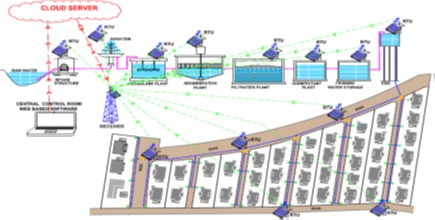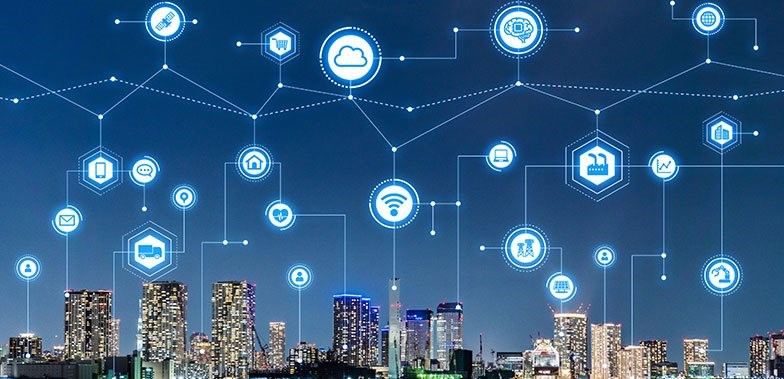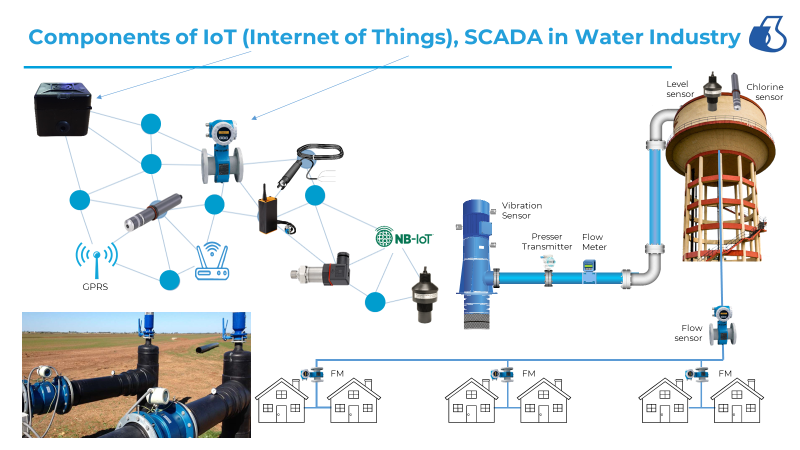Dr. Anil Kumar Mishra, Bacteriologist, Delhi Jal Board, Govt. Of NCT, Delhi
Water is an essential and vital component of life support system. The grounds as well as surface water resources are being utilized for drinking, irrigation and industrial and other purposes. However, due to rapid growth of population, urbanization, industrialization and agriculture activities, water resources are under stress. There is growing concern on the deterioration of water quality due to geogenic and anthropogenic activities. According to news published in daily News Paper “Dainik Jagaran” dated 14-06-2018; 13491 Million Quesec Meter (MCM) ground water available in Delhi, out of this 10,284 MCM (~ 76%) water is not fit for drinking and other purposes due to higher concentration of chemical contaminants. Due to lack of sufficient infrastructure of Rain water Harvesting in Delhi, ground water table decreasing day by day in the rate of 0.5 -2.0 meter /years; as citizens of Delhi extracting ~392 MCM ground water/year inspite of only recharging 287 MCM/year. It means a huge difference (~105 MCM) observed between rate of extraction and recharging of ground water in Delhi. Non-revenue water (NRW), is water which is produced in water treatment plants and other sources but couldn’t either reached till consumer houses or managing authority could not get revenue due to various reasons. NRW losses may be due to Real or Physical losses (losses caused by leakage in rising mains or other water pipe lines in distribution system,) and apparent losses (losses caused by metering abnormalities issues or theft). Due to high levels of NRW, quality and quantity of treated water reduced drastically; as managing authority or department not getting sufficient amount of revenue required for upgradation of distribution system or other quality monitoring system. Briefly, we can define NRW “as the volume of water lost as a share of net water produced from various sources in particular area or time. NRW is sometimes also known as unaccounted-for water (UFW).
Many national and international organizations have been developed, methodologies to access the various components which are required to manage or understand the concepts and components of NRW. The main components of NRW are as underneath:
– Authorized unbilled connection: Some consumers have taken water connections but not paying bill to agency or managing authorities due to various reasons like Govt. policies (like slab system of billing or metering) or some other personal reasons of consumers. Sometimes, government also provide free water to religious institutions, hospitals etc.
– Apparent losses : Some consumers not getting water connection and using water from unauthorized ways either from main water line or some other sources. Sometimes, some consumers tempered theirs water meter; resulting they are using more quantity of water but paying revenue for few quantities of water.
– Real Losses: This is the major cause of NRW in various states of India; As some rising mains or distribution line are very old and due to corrosion, leakage in valves/chambers or due to some other reasons, water is leaking from pipeline and filled in surrounding areas; resulting quality of supplied water also deteriorated because in various states of country twenty four hours water supply facilities are not available (intermittent water supply system is available) and during nonsupply hours when water pressure reduced in pipelines this leakage water again enters inside the water pipe lines and consumers getting contaminated water during next supply hours.
Most of the water utility departments are not well aware about the share of various components responsible for NRW. Due to lack of this basic information, they can’t take proper actions or steps to reduce NRW. For confirmation of share of these components “Water Auditing” may be proved as a main tool. In such practices, water meter may be installed in the entry point of water pipe line (bulk water meter) in particular sector/ area and after that we may calculate that what amount of water supplied in that areas, same amount of revenue generating or not. In most of the developed countries, there are very limited apparent losses but in developing countries it is too high. Many countries have developed water auditing software for the validation of theirs water audit data related to various components sharing for NRW and steps adopted for reducing it. On the basis of this data, they controlled NRW and planning to take corrective action to reduced it upto maximum quantity. In India (some states), and other countries adopted various method for reducing NRW and reduced it upto 5-10% from 40-50%.(According to various national and international organization/ guidelines maximum NWR should be between 15-20% in distribution system and upto 8% in production source). Water audit also may be classified into validated water audits ( it is complex complex process that involves testing of production water meters, randomly testing of customer meters, eliminating systematic errors related to billing process and validating the number of illegal connections through aerial mapping, field surveys or crossreferences between various existing databases etc.) and Un-validated water audits (include many estimates and their results may have some errors . Its main value is to identify where it is necessary to reduce the uncertainty of the water audit through validation.)
Factors responsible for NRW:
In India and other countries, many steps are being taken by utility bodies for significantly reduction of NRW but outcomes are still awaited, especially in developing countries in world wide. Although some states of India and other countries achieved it upto significant level but these are very few in number. There are many factors which are creating hindrance during the efforts made for reduction of NRW. Some of them are as underneath:
– Involvement of political pressure in many countries by various ways.
-Sometimes, responsible officers of water utility department think that designing of new projects related to pipelines or other water related infrastructures are easy instead of repairing of old and underground water pipe lines.
– In most of the cities, due to heavy traffic in roads, field staff of utility department work related to repairing in night and that time it may possible some errors during rectification work. Resulting leakage may continually persist for long time. Sometimes field staff not properly checking illegal water connections and those consumers getting sufficient water without paying any revenue and also misusing drinking water for other purposes.
– Sometimes, meter readers adopting fraudulent practices for generation extra income.
-Sometimes, plant or area managers spending less amount of fund required for up-gradation of water network and quality monitoring system or other rehabilitation related work which are necessary for proper supply of potable and wholesome water to consumers, resulting that system slowly become deteriorated and ultimately NRW may increase.
-Sometimes, officers and officials of utility or maintenance division diagnose any problem by hit and run method instead of experimentation.
– Sometimes, due to lack of coordination among the various stack holders of the project, either that project couldn’t complete in time or its proper implementations may not complete. Resulting the purpose / outcomes of project could not achieved.
Steps to be taken for reducing NRW:
– Efficient and quick steps must be taken for rectification or repairing of leaking pipes to avoid water losses and contaminations. –
-Adopting district metered area (DMA) system (means divide the particular areas into small sectors) for proper supply and maintenance of water in particular area with sufficient pressure, which is required to collect water without booster upto top floor. This system also helpful for water auditing and revenue collection.
– Proper monitoring of water network from rising mains till consumers. For example by using water loggers or other instruments or technologies we can easily detected leakage in underground water pipelines and take corrective measure as soon as possible to avoid wastage of water.
-Proper and stable pressure management in water mains and network pipelines play important role for longevity and proper running of water pipelines. Water pressure in water pipe lines neither should be so high nor low and it should not be fluctuating, as these conditions forcing to bursting of pipe lines. For regulating this, control valves should be installed at proper distances and locations. By maintaining proper pressure we can also save energy consumption, required for pumping of water against gravity.
-Use all the data properly collected during water auditing or other methodologies for proper and efficient water management and on the basis of outcomes of that data set a limit for NRW and try to strictly follow it to achieve the target.
-Illicit use of water consumption is also a major component for increasing NRW. for reducing it adopt various methods or policies at various levels (Central or state government till Gram Panchayat level).
-Provide awareness among the consumers related to importance of water for life, its conservation, sustainably use of water, avoid water contamination etc. and provide training to employees of the utility bodies by applying different methodologies related to various aspects of water and its conservation.
Importance of Reduction of NRW:
NRW, playing important role for reduction of revenue collection in any water utility organization because if NRW is much more then consumers may not get sufficient quantity of water and pay less amount of revenue to utility organization. Various national and international agencies have made study related to NRW and estimated the total cost of NRW to utilities worldwide at about many billions per year. If we reduced it, millions of people may get sufficient quantity of potable and wholesome drinking water. Some of the important benefits of reduction of NRW are as underneath:
-Revenue or financial status of water utility organizations increased. If we reduce, NRW then consumers may get more quantity of water and pay more revenue to utility organization or required to produce less quantity of water at water treatment plants or other sources for same population which reduced production cost of treated water.
-By reducing NRW, we may reduce water contamination in bulk storage tank or in distribution lines. Because leakage in pipelines shares a major component for increasing NRW. Leakage in pipelines increase the risk of water born disease because this leakage water again enters into distribution pipelines during non-supply hours or when water pressure reduced. This contaminated surface water contains many microflora or chemical contaminants which may causes threats for consumers. By reducing NRW, we can supply water to consumers with optimum and stabilized pressure. .If sufficient quantity of pressure available in water pipe lines then consumers will not use booster pumps in theirs houses. This will save electricity and also check water contaminations.
-By reducing NRW, we can save much quantity of water and this water may be utilized for providing water supply round the clock to consumers or may be given water connections to new consumers and may generate more revenue.
-For reducing NRW, Leakage reduction in pipelines is an important step and after that consumers may get sufficient quantity of potable and wholesome water for house hold and other purpose. If consumers will satisfied with the services of utility department then they will not make any misbehave with the employees of organization. Resulting, relation among employees of utility department and consumers may be improved.NRW reduction, also helpful for reduction of legal liability and insurance payments.
In conclusion, we can say that water is 100% natural and no substitute for it. Use it judiciallyand sustainably so that our future generations may also get sufficient quantity of potable and wholesome drinking water. If we may nor maintain it significant number of population may not get good quality of water in coming decades (as various organizations are issuing warning time to time related to water and its uses ). So for proper conservation and management of water, adopting various technologies for reduction of NRW, Rain water harvesting, reduce, recycle and reuse of water , reforestation etc. Bureau of Indian standards also emphasizing for reduction of NRW and DMAs creation for better management of drinking water supply from water treatment plants till consumers houses.





